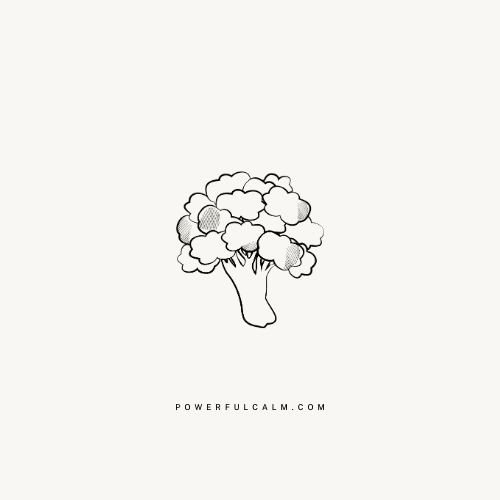There are two paths – body hate vs body love.
There is no in-between, justifications, or talking yourself into what-ifs.
Maybe I like the color of my eyes, but my legs are too short. Or perhaps I like the way my body moves, just not the muscles or the bit of jiggle. There isn’t room for an in-between-the-line sort of perspective.
Can you parse out your relationship with your body like that and still have a “healthy body image?”
It doesn’t happen much, but there are all-or-nothing situations. The gray areas only serve to distract from how you truly feel. When the painful reality of how much body hate you endure daily, it’s time to make a real commitment to change.
Two Paths: hate or love.
Why do you hate your body?
The path of hate is an easy one. You can continue living with negative thoughts and feelings about your body and you’ll find a lot of company. It’s how we’re socialized, especially women, that there’s always something not good enough. It’s expected that you will join in the negative body talk. For many people, it’s a bonding experience to share your pain of dissatisfaction with your body.
If you tend toward stress, eating is the usual fallback to soothe the pain – temporarily.
Self-deprecating humor about your body means saying, ‘Yep, we’re in the same boat; I don’t like myself either!’
Going along with the crowd
You can continue to agree with the millions of magazines, social media posts, radio and TV commercials, billboards, and so on that tell you your body could be better. The way to cure body hate is through diet and exercise. It’s the logic that if you do this, you will love yourself, and your life will magically fall into place because you’ve reached some physical acceptability.
Okay, maybe they don’t say the last bit, but the message is loud and clear for many people.
You might think, if this celebrity spokesmodel can make it happen, so can I! The plan they’re selling will finally get me you where you’re supposed to be.
Do this and you will receive lots of other good things in life.
Sometimes, it’s even presented that you don’t deserve good things or aren’t worthy if your body is less than some arbitrary acceptable definition.
These messages are often followed by competing messages that show delicious-looking foods that will bring fun and happiness into your life. You follow the trigger and assure yourself this is the last stress-eating episode.
Mindset and body love
From a mindset perspective, this type of thinking falls into the fixed mindset category. You’re looking outside of yourself to change the way you feel. It makes sense if you haven’t experienced a different self-relationship; how would you know a different way is possible?
Carol Dweck, a Stanford researcher who studies mindset, has shown that people who have a growth mindset are better able to take risks, challenge their fixed mindset beliefs, and are willing to identify fixed mindset triggers and learn from them. This means that when you approach life from a growth mindset, you’re eager to evolve and incorporate new ways of being with yourself, even when what you know doesn’t work and you’re not sure what will work.
When applied to transforming body hate into love, you need to willingly look clearly at your thoughts and feelings as well as the conversations you have with yourself and others about body image, so you can identify triggers that keep you in a fixed state of hate.
You can also take action when you stop paying attention to information that doesn’t help; even when it’s uncomfortable, try a different way.
Just think of how much time and energy you’ve spent keeping things the same. You were searching for an answer in something that worked for someone else instead of listening to yourself. Paying attention to your body so that you receive the information you need to become who you need to be.
How to grow your body love
The path of love is much more difficult.
The path of love takes time.
The reward is the transformation from the inside out – real, lasting change.
What I can promise you is that if you take the path of love, you will –
- get frustrated
- doubt you’re on the correct road
- make mistakes.
These are all expected and welcomed because this is where change grows into new ways of being with yourself.
Transformational change results in a life shift that is nearly impossible to reverse.
The changes become part of who you are.
Why do we often take the path of hate when love is so much better?
The path of hate has many people you can join up with.
There’s a lot of advice and support to stay in the struggle and stay the same. Keep up the battle and live in discontent with your body because we’re all together on this! It’s familiar and the reinforcement you receive is all around.
The old stories you tell yourself need somewhere to go. It would be best if you stashed the discomfort to get relief. All the better if you can blame outside of yourself. But the problem is that you’ll need to wait for society, your family, the media to change before you can feel better. Your power is stripped away.
Family Body Stories
Body stories are like other lore. They are passed down from your parents, teachers, coaches, culture and kids will either rebel or adopt these beliefs.
Many studies have examined family relationship patterns (here, here, here) and their influence on body image. What we know is that especially in mother–daughter relationships, the unhappier mom is with her body, and there is increased body image and eating problems in the child. Without intervention, this relationship pattern continues into adulthood and gets passed down to the next generation.
The research has also shown that when parents have a positive relationship with their bodies, it provides insulation from body image issues and the diet messages that bombard us in daily life.
It’s a big culturally acceptable bath of yuck that most women, at one point or another, will jump into and sadly never get out of.
The struggle is having a healthy, loving relationship with your body.
Maybe you would like to change your weight, find an exercise plan you enjoy, make some changes to how you eat and generally feel better in your body. That’s great!
You can do any or all of those things and protect yourself from the influence of a fixed mindset by focusing on what you think and instead doing what’s right for you.
Your body story influences your day-to-day life, so make it supportive!
Here are three ways to help you get started
The first step is to pay attention to the little things you say to yourself. The judgments and comments you make to others about your body and eating habits. Also, the silent judgments you make about others that you would be mortified if they found out. Kindness and compassion are a circle that supports emotional well-being for all when it’s freely given and received.
1. Challenge yourself with supportive questions
- Is this what I want to say to myself and how does this affect me by giving voice to it?
- Is this thought or feeling leading me to health and well-being?
- Does this help me become who I need to be, or does it keep me standing still?
Having some supportive and compassionate statements at the ready is also helpful. Don’t worry; I’ve got you covered just below.
2. Reframe your story; every ‘because’ argument has at least two sides
You’re the one who decides which direction to go. Sometimes, it must be true if it’s something you’ve thought or heard for many years.
But is it? People can change at any point in their lives. Sometimes, it takes minimal effort and other times, it can seem like you’re moving with lead weights strapped to your ankles. Keep moving anyway.
When change happens slowly, allow yourself to acknowledge all the tiny victories because they will add to the change you want to happen.
When change happens quickly, remember all the time, thought, planning and action you have put into making it a reality. Most overnight successes were years in the making.
Both fast and slow changes need to be honored – with abundant love.
You’re more likely to make healthful decisions when you feel better and your self-esteem is high. Positive creates more positive. This is why the path of love, although more challenging to navigate at first, becomes more accessible. You will experience more freedom and greater well-being in the process.
3. You can choose love over hate at any time
You can change your thoughts and they have the power to transform body hate.
Here are some alternative statements to get you started:
I hate my body.
Alternative: I’m nurturing a loving relationship with my body.
My ______ is too fat/thin.
Alternative: My body is just as it needs to be now, and I am evolving.
My ______ says I’m ______.
Alternative: I choose my relationship with my body and nurture myself with love.
I feel fat!
Alternative: I have many feelings and there’s more to feeling fat.
I can’t eat ______.
Alternative: I choose foods that nurture my mind, body and heart.
I need to work off those calories!
Alternative: I am integrating all food choices into my lifestyle and I move my body with peace.
My body doesn’t like me.
Alternative: I am getting to know another side of my relationship with my body and practicing self-compassion is part of it.
I feel gross like this.
Alternative: I am changing and sometimes I will feel uncomfortable and it will pass.
I’m just not attractive.
Alternative: I am growing in my appreciation of beauty in all aspects of myself.
I wish I had ______.
Alternative: I have all that I need right now and know that I may change in the future.
I don’t feel like myself anymore.
Alternative: I am focusing on being present and learning what I need to care for myself in new ways.
In Sum
Use this list as a starting point to become more aware of your internal conversation. Use the awareness to shape statements to provide you with the information you need to support and trust yourself – that you can change your self-relationship and be comfortable in your body.



